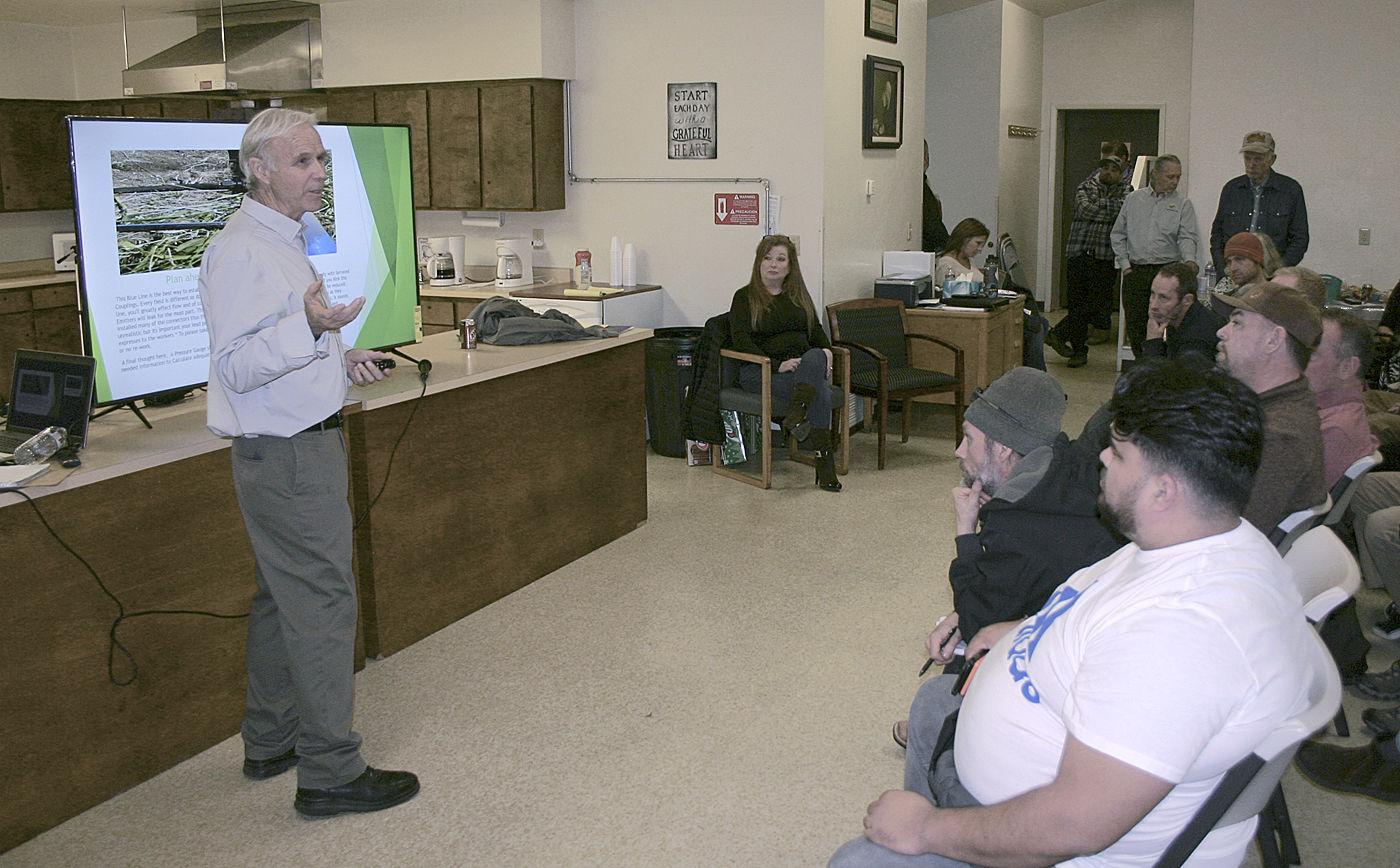Leading Agriculture Newspaper Covers the Co-ops Vision for NW Growers
Published in Capitol Press, Feb 5, 2019
MEDFORD, Ore. — A newly established farmers’ cooperative aims to unite Southern Oregon hemp growers and processors as they enter the budding industry.
The Southern Oregon Hemp Co-op held its first meeting Feb. 1 at the Roxy Ann Grange in Medford, Ore. More than 80 people filled the grange hall to hear presentations about growing hemp, and benefits offered by the co-op for selling into markets including pharmaceuticals, beverages and cosmetics.
Mark Taylor, a longtime construction and development contractor in Medford, founded the co-op in December 2018 after trying his hand at growing 2.5 acres of hemp. Getting started proved more difficult than he thought, learning the right techniques and spotting issues in the crop.
The worst thing, Taylor said, was the bottleneck of product when he tried to sell in October after harvest.
“This is real critical,” Taylor said. “We shouldn’t have to go begging for buyers.”
Instead of small and mid-size farmers trying to go it alone, Taylor said the co-op can pool their resources to fight for fair trade and price. The co-op will also work to line up buyers in advance, so growers don’t panic late in the season and sell to the lowest bidder.
“We are going to be large enough to offer millions of pounds of hemp,” Taylor said. “We’re going to move product, and we’re going to make it easier for you to move product.”
So far, the co-op has 23 members signed up, representing about 400 acres. According to the Oregon Department of Agriculture, there are 75 registered hemp growers and 22 registered handlers in Jackson County, and 45 registered growers and 14 registered handlers in neighboring Josephine County in southwest Oregon.
The 2018 Farm Bill opened new opportunities for U.S. hemp farmers by defining the crop as an agricultural commodity, and removing it from the list of federally controlled substances. That means farmers can sell hemp products across state lines, while gaining access to crop insurance and banking.
While the crowd at Roxy Ann Grange speculated about hemp markets, Taylor said the vast majority of processors are still interested in extracting cannabidiol, or CBD, isolate to make products such as lotions, mints, drinks and oils. Taylor said the co-op is already identifying prominent potential buyers.
“We’ve got to get out in the forefront right now,” he said.
A self-styled marketer, Taylor is promoting hemp from Southern Oregon as coming from the finest farmland in the country, grown by farmers in predominantly pesticide-free soils — what he calls the “Golden Triangle.”
“I’ve taken that term, and yes, I’m proud of myself,” Taylor said. “We’re already nationally known.”
The co-op, Taylor said, can streamline the business aspect of locally grown hemp and give local growers a leg up in the marketplace.
Matt Cyrus, a sixth-generation farmer growing hemp near Bend, Ore., also spoke at the co-op meeting. Cyrus predicts there will be 30,000 to 40,000 acres of hemp grown across Oregon in 2019, and he cautioned against out-supplying the market and pushing down prices.
“This industry has progressed exponentially the past three years,” he said.
Cyrus said he sees opportunities with farmers banding together in a co-op, balancing supply and demand to keep farms healthy and profitable.
“The world is our market, literally,” Cyrus said.

